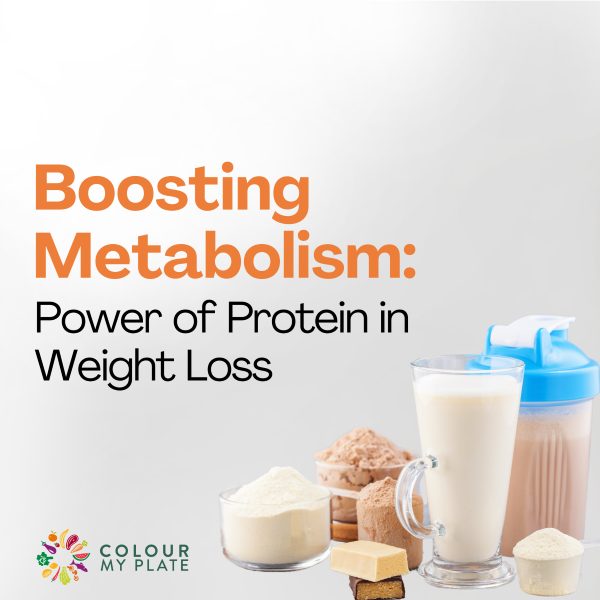
![]() 23 Jul 2024
23 Jul 2024
When trying to lose weight, many people focus on cutting fat and carbohydrates, but often overlook the importance of protein. It plays a crucial role in fat loss and boosting your metabolism. Let’s dive into why increasing your intake can make a big difference.
Protein helps you feel fuller for longer by decreasing the level of ghrelin, the hunger hormone, and enhancing the function of weight-regulating hormones that help you feel satisfied. This means you’ll likely eat fewer calories throughout the day. By boosting your intake to over 25% of your daily calories, you can significantly reduce cravings.
Aim for 20-40 grams of with every main meal, here are some high-protein foods to include in your diet:
Did you know that your body burns calories just by digesting food? This is called the thermic effect of food (TEF). Protein has a higher TEF compared to fats and carbohydrates, which means eating more can give your metabolism a real boost. Simply put, your body uses more energy to process it, so you burn more calories even while resting.
When you’re losing weight, it’s important to preserve your muscle mass, and protein is key to that. Protein is the building block of muscles, helping to induce muscle growth and maintain lean mass. This is especially important if you’re doing strength activities like weightlifting or resistance exercises. Studies also show that eating more protein helps maintain bone mass as you age. This means a lower risk of osteoporosis and fractures. So, by increasing your protein intake, you’re not only supporting your muscles but also keeping your bones strong and healthy.
Protein plays a crucial role in helping our bodies recover after injury by facilitating the repair and rebuilding of muscle tissue. Consuming protein immediately after exercise is particularly beneficial as it stimulates muscle protein synthesis. This process involves the body creating new muscle proteins to replace damaged ones, optimizing the recovery process post-workout.
Proteins are complex molecules that the body breaks down slowly, making them a slower and longer-lasting source of energy compared to carbohydrates. After consumption, amino acids enter your bloodstream and can circulate for up to six to seven hours, providing sustained energy throughout the day.
In conclusion, making protein a priority in your diet is crucial for achieving weight loss goals. Increasing your intake improves your metabolic health, supports the preservation of lean body mass, promotes muscle growth, and aids in muscle recovery. By incorporating enough into your meals, you not only support your fitness goals but also optimize your body’s recovery and long-term health.

We noticed you haven't completed your delivery details.

Your message is sent